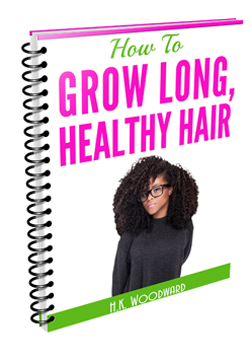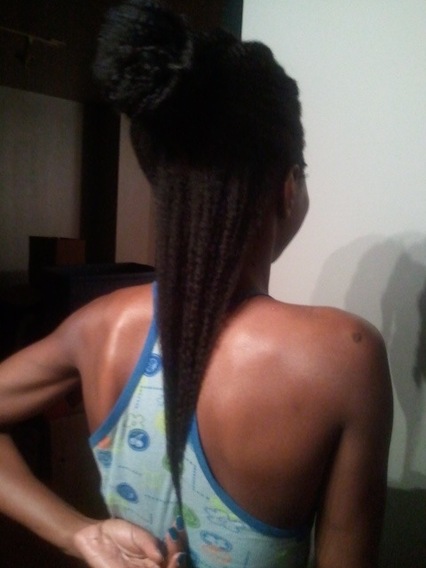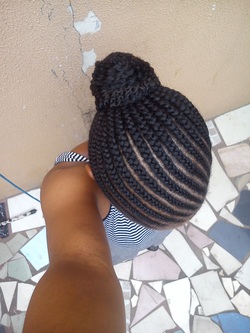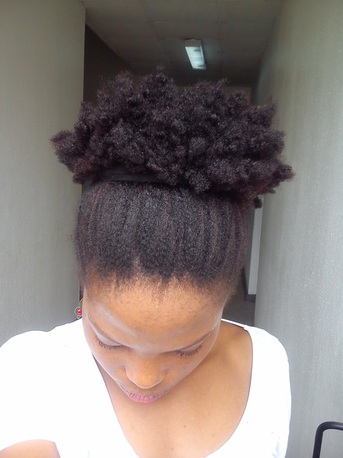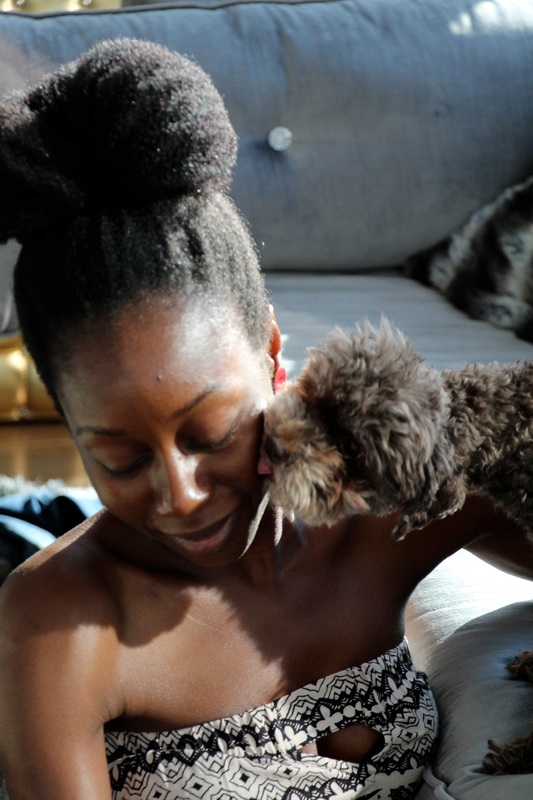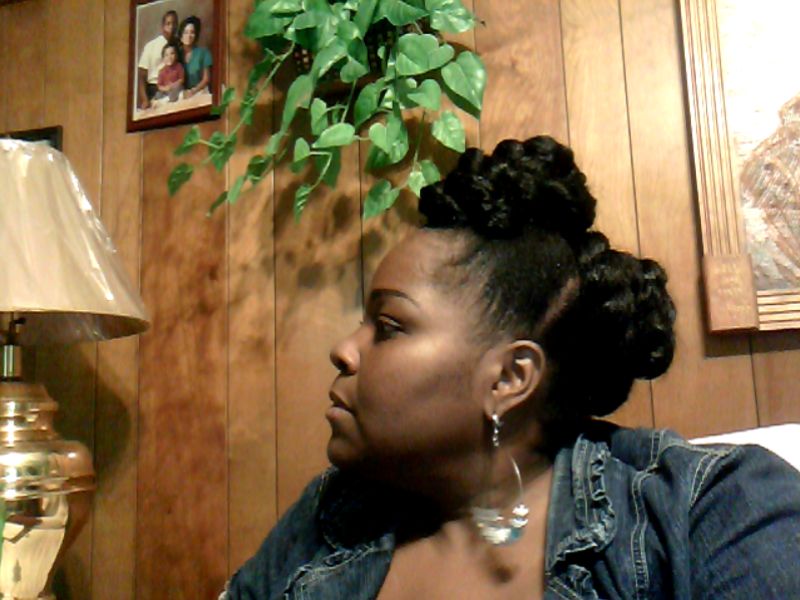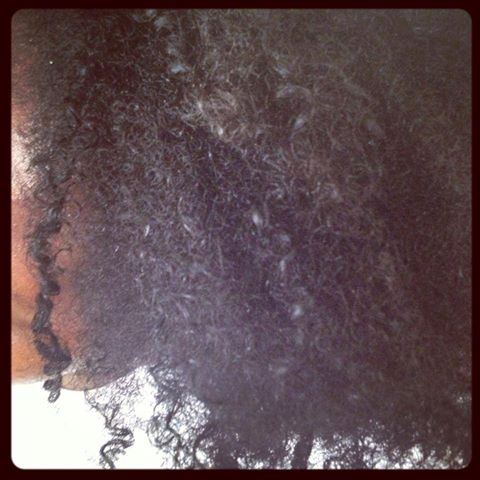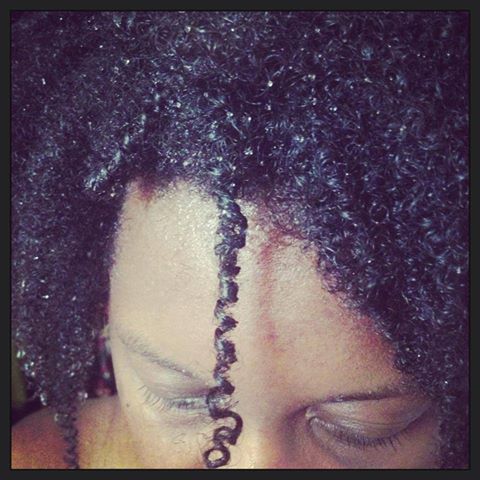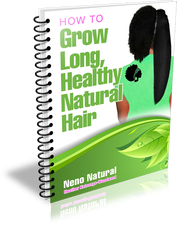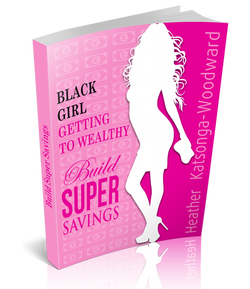 Classic box braids. Classic box braids.
Yes, but not indefinitely!
Most of the benefit of regular conditioners comes from the stuff that coats your hair. These ingredients are designed to coat hair so that it looks more shiny and strengthens hair from the outside. That said, many products that are designed specifically for natural black hair recognise the fact that our hair is weaker so they include more ingredients that adsorb (penetrate) into hair and strengthen the hair fiber from the inside. This is especially true of deep conditioners. That said, this penetration process will happen within 20 to 30 minutes. Keeping the conditioner on for more than 30 minutes will have no added benefit whatsover. Let me explain it another way: you know when you have wilted salad leaves in the fridge? When you immerse the leaves in cold water they water goes into the leaf and it starts to look more solid again. They look fresher and can be served. After that point (when the leaves are "turgid") keeping the leaves in the water for longer has no benefit whatsoever. In fact, if it's a hot day those leaves will start rotting right there in the water! The key with using a conditioner is to make sure that it is evenly spread over all your hair.
In summary, if you leave your conditioner on your head for hours and hours there is no added benefit whatsoever. If you're like "but it feels softer" that has nothing to do with the conditioner, it's just the moisture. If you rinsed all the conditioner off and put a shower cap back on you would get the same result!
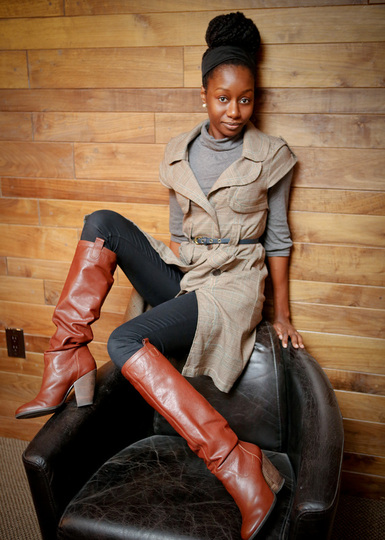 Click for Nia's regimen. Click for Nia's regimen.
Hair damage is a very common problem.
Over time the outer layer of hair, the cuticle, naturally erodes away, breaks and lifts. These are points of weakness where the hair is likely to break. I like to refer to these gaps in hair as “hair potholes” (note that this is not a technical term!). Bad hair management, e.g. excessive use of heat and rough styling equipment increases the likelihood of such potholes occurring. Most conditioners help to prevent such damage but at the moment none actually repair it. Scientists are working to solve this problem; just like a broken or fractured bone can be completely healed they want to do the same with damaged hair. What would be needed to repair the hair would be something that permanently fills the hole. At the moment, conditioners fill these gaps but after a couple of washes those holes and gaps are gaping open again. It’s just like having a road with potholes and filling those holes with sand, when the rain comes you’re back to square one! Anyhow, the first major move in technology to repair hair is something called Polyelectrolyte Complex, PEC. It consists of a negatively charged ion called PVM/MA polymer and a positively charged ion called Polyquaternium-28. How does PEC work? Instead of just coating hair like most conditioners do it penetrates the hair and seals it from inside. When PEC penetrates hair and dries the split end is permanently fixed – the pothole has been filled with tar! As the technology is still in its infancy I can’t ascertain the strength of this fix. That is, does one application fix that hair strand permanently or is re-application needed to maintain the same broken strand every so often. Also, does one application fix all the damage in one hit or are several rounds of conditioning needed to get to all the damaged hairs? What factors work against PEC? E.g. does blow drying and straightening hair with heat cause the fixed hair to get damaged again more quickly? Many questions remain open and more tests are needed to confirm this. 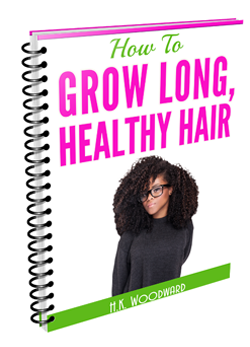
References:
Get your FREE ebook on How To Grow Long, Healthy Natural Kinky or Curly Hair. 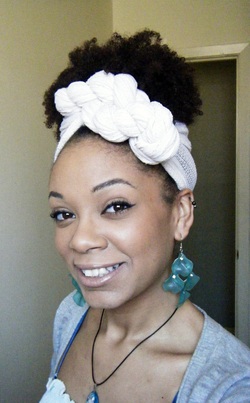 Click for Tori's regimen. Click for Tori's regimen.
I know some co-washers will start reading this blog feeling very irate that I would even suggest that co-washing is a bad idea but hear me out for a second before you get annoyed with me.
Now, I am not totally anti-co-washing, in fact, I think if you want to wash your hair more than once a week it is far better to co-wash between weekly shampoos. A few people I know have found that after co-washing only their hair gets drier and more brittle and they think that it's the co-washing that is to blame. The answer is: NO. Co-washing does not make your hair more dry in itself but it is EXTREMELY restrictive in what products you can use. Some ingredients in conditioners and leave-in moisturizers stick to your when applied so that they can keep your hair conditioned and moisturized for a while after the conditioning or moisturizing session. Some of these ingredients, will not wash off without shampoo. So when you re-apply your products these ingredients continue to build up and build up until your hair is indeed brittle, dry and starts breaking. Most co-washers are not educated enough about ingredients to know what they need to avoid. In fact, although I know a fair amount of what's a no-no for co-washers I would need to take a list when I go shopping because I wouldn't remember everything off by heart. Importantly, no list is exhaustive. This means no list will list everything and no list can because new ingredients are coming out all the time. So, what should co-washers avoid, in general:
In summary, co-washing can work if you make an effort to learn everything that must be avoided, however, in my opinion a co-wash only regimen is not worth it because shampoo does have an important role to play in healthy hair management: A clean, pliable and healthy scalp is essential for natural hair growth and clean hair is need to moisturise and condition hair effectively. 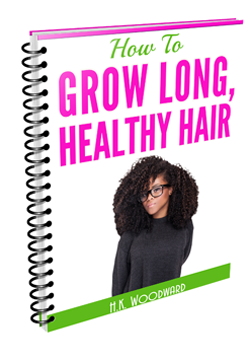
You might also like:
Get your FREE ebook on How To Grow Long, Healthy Natural Kinky or Curly Hair. 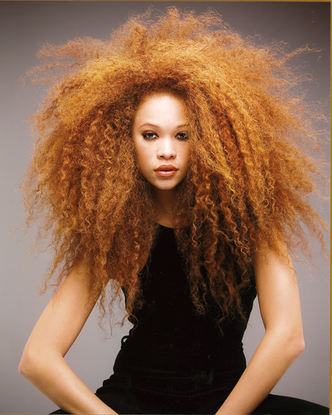
A short while ago I wrote about How To Make Homemade Aloe Vera Juice For Natural Hair. My recipe shows you how to extract the gel and then how to dilute it to make the juice version.
A few people asked how you can use the aloe vera gel or the juice on hair. Here are 5 ways that you can use aloe vera juice or gel. (If you want to know the benefits of aloe vera juice click the link to the blog at the bottom of this blog): 1. Pre-poo Before you shampoo your hair apply aloe vera to your hair and scalp. This will help to condition and moisturize the hair as well as soothe an itchy scalp. You can enhance the pre-poo formulation with essential oils. Let the pre-poo blend sit for 5-10 minutes before you rinse it out. 2. Shampoo Add aloe vera juice to a store-bought shampoo to get it's moisturizing benefits or use it instead of water when you make a DIY shampoo recipe. This is especially useful if the shampoos that you can find in your local area dry your hair out. Only add the aloe vera to the portion of shampoo you are about to use. Adding any extras to a whole hair product bottle can destabilize the lot! 3. Conditioner You can use this to dilute a very thick conditioner instead of water. In so doing you will get the conditioning benefits of aloe vera juice too. 4. Scalp soother If you have an itchy scalp or if your scalp is inflammed or sore for some reason apply aloe vera to the affected area and you should see a difference. Obviously if it is a serious issue you need to see a doctor. 5. Daily spritz base Instead of spritzing with water use aloe vera. Note that if you decided to use aloe vera juice with oils they won't blend but in the new year I will teach you how you can emulsify the two so that they do blend. 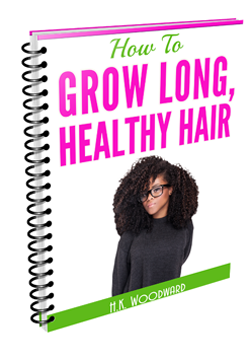
If you are wondering what the benefits of aloe vera are, then you will like: Get your FREE ebook on How To Grow Long, Healthy Natural Kinky or Curly Hair. 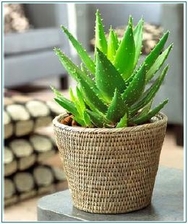
Aloe vera is a stemless thorny plant with thick, fleshy green leaves. It can be purchased in various forms including as an oil, a gel, a juice/liquid or even as a powder. You can also just buy a little aloe vera plant and extract the gel yourself.
I used to keep an aloe vera plant in my kitchen to soothe any burns very quickly. It is very effective in this function. The healing properties of aloe vera have been known for centuries. Specifically these are the benefits of aloe vera for hair: 
To derive the greatest benefit it is best to get the gel straight from the plant, however, the liquid, store-bought form carries most of the properties. The main difference is that the oils from the plant tend not to be found in the liquid version. The powder, if it is pure and unmixed with any other powder ingredients, will be just as beneficial as the liquid type. Importantly for mixtresses: buy aloe vera that’s been preserved for your DIY haircare recipes otherwise you could get serious contamination issues with your products. If you will extract the gel from the plant yourself extract just the amount you need to use on that day and of course, preserve your product so that it doesn’t rot or refrigerate the gel and use it within a couple of weeks. 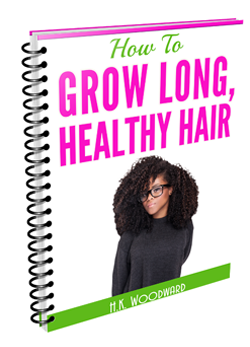
Get your FREE ebook on How To Grow Long, Healthy Natural Kinky or Curly Hair.
When it comes to detangling it's a lot easier to show than tell so watch the video for the demo but here are a few tips before that:
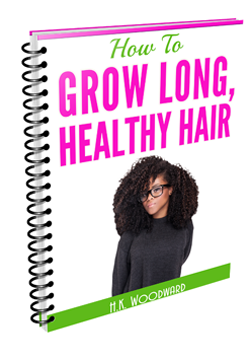
If like me you have hair that tangles a lot there are a few things that you can do to reduce the incidence of tangles:
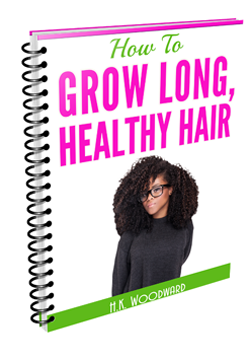
Nikki has super healthy hair. Click an Image for her regimen.
You know from my blog on The Advantages and Disadvantages of Silicones that silicones have some great benefits. However, some silicones do not wash off without shampoo so if you are on a co-wash regime you need to avoid them.
Water-soluble (Will not buildup on hair; can be washed out with just water)
Slightly soluble / evaporate from hair (May buildup in hair; can usually be co-washed out)
Not water-soluble (Will buildup in hair and need a sulfate shampoo to be washed out)
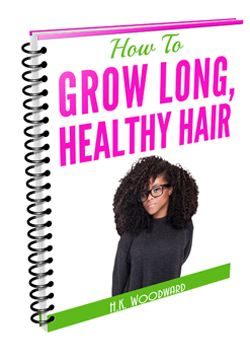
You might also like:
Get your FREE ebook on How To Grow Long, Healthy Natural Kinky or Curly Hair.
Many silicones have fabulous benefits to hair, that is why they are found in so many products. However, if you co-wash only or use VERY gentle sulfate-free shampoos you need to be careful: some silicones need a strong shampoo to be washed out.
If you keep using a product with non-soluble silicones (silicones that don't dissolve in water) in it whilst you're on a co-wash only regime they build up on your hair leading to dry, dull hair that is difficult to manage. This means that you need to avoid products with those silicones and to only use water-soluble silicones. Water-soluble silicones will not build up on hair because they can be washed out with just water. The most common water-soluble silicones are:
If you want to know which silicones you need to avoid read: 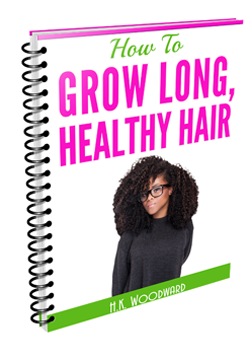
You might also like:
Get your FREE ebook on How To Grow Long, Healthy Natural Kinky or Curly Hair.
You would be totally forgiven for believing that all silicones are horrendous for natural hair. That, like most blanket statements, is simply not true. In this blog I share with you the benefits that silicones can have on hair as well as their disadvantages.
Benefits of silicones to natural hair Silicones are beneficial to hair because they:
Silicones are found in many hair care products including shampoos, conditioners and hair gels. The degree to which a product can perform the above functions depends on the specific silicones in it, their concentration and the state of your hair. Disadvantage of silicones
If you only ever co-wash or use very gentle sulfate-free shampoos these silicones build up on your hair. That coat of silicones prevents moisture, good oils, minerals and proteins from entering the hair shaft leading to drier hair that breaks. So if you only co-wash you need to look for products that only contain water-soluble silicones.
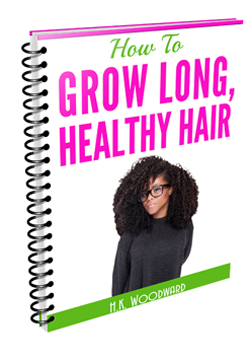
You might also like:
Get your FREE ebook on How To Grow Long, Healthy Natural Kinky or Curly Hair. |
I now blog about wealth creation - so if you have any money questions meet me there, you can do all sorts of cool things like leave me a voicemail.
By Heather Katsonga-Woodward
I was a natural hair blogger and mixtress living between London & Chicago from 2012 to 2017. I always thought I was 4C but some say 4B; images below - you decide! Heather xx Categories
All
Archives
November 2016
|

